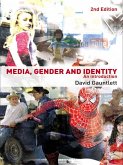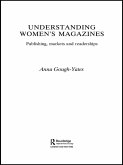- a comparison of gender representations in the past and today, from James Bond to Ugly Betty
- an introduction to key theorists such as Judith Butler, Anthony Giddens and Michel Foucault
- an outline of creative approaches, where identities are explored with video, drawing, or Lego bricks
- a Companion Website with extra articles, interviews and selected links, at: www.theoryhead.com.
Dieser Download kann aus rechtlichen Gründen nur mit Rechnungsadresse in A, B, BG, CY, CZ, D, DK, EW, E, FIN, F, GR, HR, H, IRL, I, LT, L, LR, M, NL, PL, P, R, S, SLO, SK ausgeliefert werden.
"Gauntlett's optimism is infectious, the subject matter engaging, and, as a result, the book is difficult to put aside. It is a thoroughly pleasurable introduction to the ties between self-identities and representations of gender in media." - Anne E. Lincoln in Journal of Consumer Culture (2003)
"Brings the theory of popular culture to the widest possible audience ... Delightful and provocative." - Charlie Peverett of HERO (2002)
"The value of Gauntlett's work is his engagement with feminism and issues of masculinity in ways which...appeal to students." - Nic Groombridge, St Mary's University College









